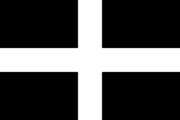Yesterday I came across an idea of writing very short stories in just six words. Here are some examples from Wired Magazine written by sci-fi, fantasy, and horror writers:
Dinosaurs return. Want their oil back.
– David Brin
Lost, then found. Too bad.
– Graeme Gibson
Lie detector eyeglasses perfected: Civilization collapses.
– Richard Powers
TIME MACHINE REACHES FUTURE!!! … nobody there …
– Harry Harrison
For sale: baby shoes, never worn.
– Ernest Hemmingway
The last one was written by Hemmingway in the 1920s after his colleagues bet him that he couldn’t write a complete story in just six words. They paid up. Hemingway is said to have considered it his best work. So this certainly isn’t a new idea. There are many more on Six Word Stories.
On discovering this, I started wondering whether such stories could be written in languages other than English. I thought it might be easier in some languages than in others. So can you come up with any six word stories in any language or combination of languages? If it’s not possible in six words, maybe ten words would work better.

